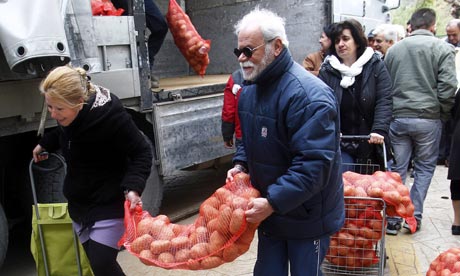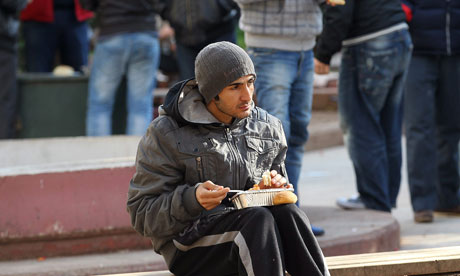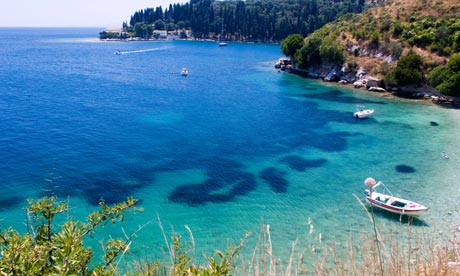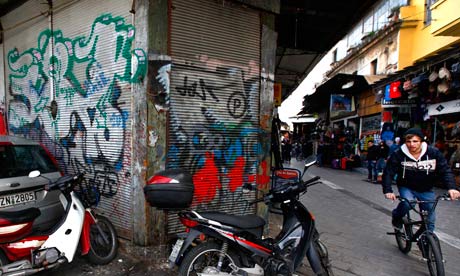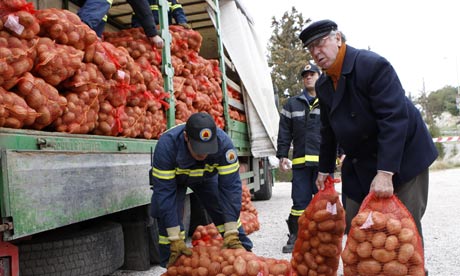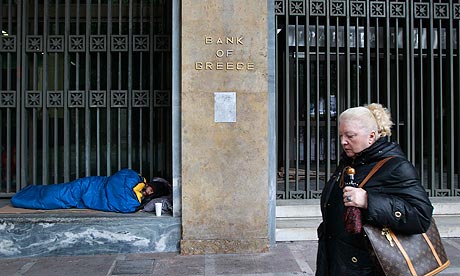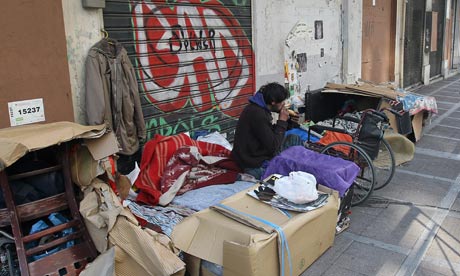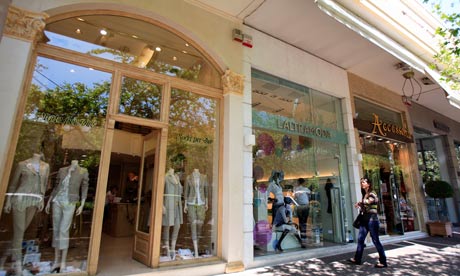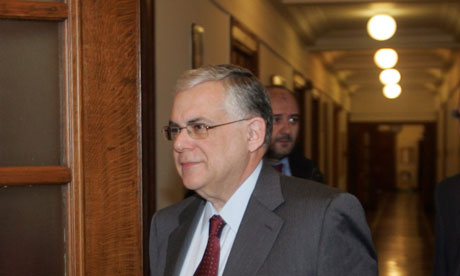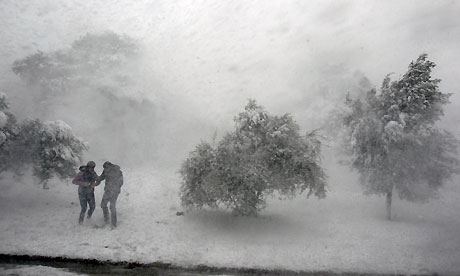The National Theatre of Northern Greece is asking audience members to bring food which it will give to charity
Greeks queue to buy cheap potatoes in Thessaloniki. Theatregoers can now donate food in exchange for tickets. Photograph: Sakis Mitrolidis/AFP/Getty Images
Solidarity among crisis-hit Greeks is showing up in unexpected places these days.
At one end of Thessaloniki's long, cafe-lined seafront, behind the 15th-century White Tower that is the city's symbol, is the resplendent main stage of the National Theatre of Northern Greece (NTNG), as imposing a temple to high culture as anyone could wish for.
Here the curtain is about to go up on a six-week season of plays, including works by Edward Albee, Harold Pinter and Jean Genet, that will be performed by members of the theatre's 100-strong troupe of actors under the banner Social Theatreshop.
What's novel is that theatregoers coming to see the Social Theatreshop productions will pay for their tickets not with money but with food, which the theatre's staff will then distribute among half a dozen charities and welfare organisations in the city.
"We are, everyone knows it, in a very, very bad situation," said the deputy artistic director, Giannis Rigas, who like everyone else involved in the project is not being paid for it.
"We thought we, actors, technicians, directors, have to do something for people who now have so little money that they are going hungry.
"But this isn't charity, it's a fair exchange: food for theatre. And it's also a nice way to bring people back to the theatre: put it back where it belongs, in the middle of the community."
In a prelude to the season, Rigas is directing a Greek repertoire classic from 1946 by Alekos Sakellarios. The NTNG is staging the piece, it says, to mark the 20th anniversary of the playwright's death.
The title suggests another motive may be lurking somewhere behind the scenes: it is called The Germans Strike Again.
"It's about a poor Greek guy who falls asleep after the war and dreams that the Germans have come back," said Rigas, straight-faced.
"It's about the way we Greeks respond when we are under pressure. We usually quarrel, of course. But this play says: be cool, find our own way – otherwise the Germans will just keep coming back."
In the present circumstances, he conceded, it was perhaps an apt message.
The goal of the subsequent Social Theatreshop, Rigas said, was "to say to absolutely everyone in our community that we too, in the theatre, have them in our minds".
Greek theatre, he said, is in dire straits: "Theatres are closing around the country. We have no money – well, we have a little, but it comes too late.
"Our audiences have no money. Here we have some of the cheapest theatre seats in the country, €10, but that's still too much for some.
Now, people can come to the theatre for a couple of cans of soup, or a packet of pasta – and they will be helping to feed people who cannot afford even to feed themselves."
Evelina Papoulia, an actor and director who is one of the NTNG's brightest stars, is staging another play in the season, Thirst.
The Social Theatreshop project, she said, "is terribly important now, because we have to show that nobody is alone. We have to do something for others, for each other, to show that we really can all come together".
Organisers are quietly confident the theatre will be playing to packed houses until the end of April, when the Theatreshop season closes.
Rigas said: "It's strange, you know, but people don't go to the theatre when they have money. They spend it on other things, on fancy things. Then when the hard times come, you need something different.
"The theatre is a place to be together. It's a physical thing – the performers, the technicians, the audience, all become one. And we need to be brought together again. In recent times, we lost that."
Greece on the breadline: the theatre exchanging tickets for food | World news | The Guardian
![The [Greek] European Tragedy](https://blogger.googleusercontent.com/img/b/R29vZ2xl/AVvXsEiWKI5s90SFm1wWTk6bs4p7CgslaC2SnYPsrZhb-B-smOufNNCSxCvpBLI9hOB-LsXZjir_PNmEiMk2-E62F3xkg96IoC6QFAaZAnPRTVH340IN9WBRmWJqPkjWlgyRj3zpALp7h6hvA58/s920/GkBack_new.jpg)
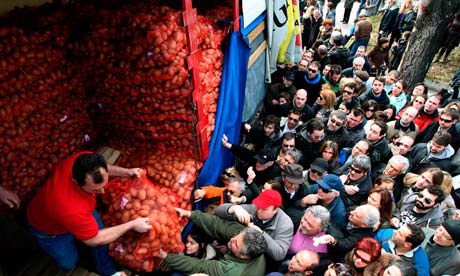
 As Greece’s economy and the euro continue to struggle, regular Greeks are increasingly taking matters into their own hands, creating informal underground barter markets and even alternative currencies. And the government is actually encouraging it.
As Greece’s economy and the euro continue to struggle, regular Greeks are increasingly taking matters into their own hands, creating informal underground barter markets and even alternative currencies. And the government is actually encouraging it. 